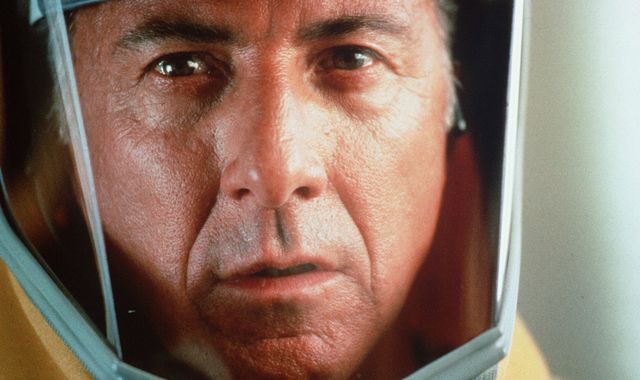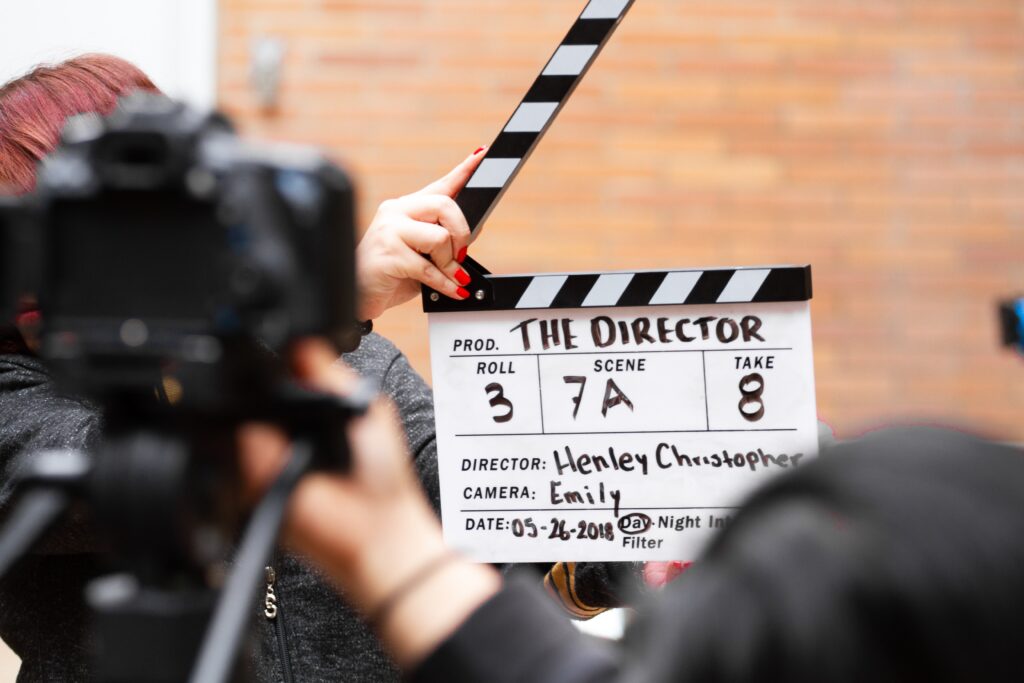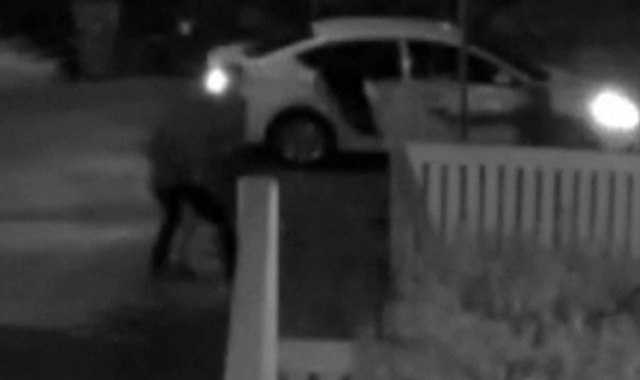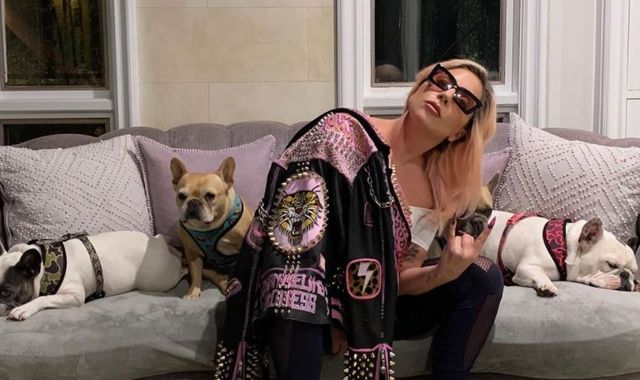Coronavirus: What can we learn from a Hollywood pandemic? The positives from four outbreak films
Written by News on 29/04/2020
At the start of the lockdown, a craze for watching apocalyptic films took hold.


Movies simulating the spread of a global pandemic saw streaming figures rocket, as those stuck at home tried to come to terms with the coronavirus climate.
Now, almost six weeks into lockdown, people are getting restless.
We revisit four pandemic thrillers and attempt to pull the positive from Hollywood melodrama.
I Am Legend
Firstly, we can all breathe a sigh of relief that we’re not battling flesh-eating zombies that come out at night.
But anyone revisiting Francis Lawrence’s 2007 film will be immediately struck by the suddenly familiar shots of eerily empty streets, devoid of human activity.
Indeed, when army virologist Lieutenant Colonel Robert Neville (played by Will Smith) finds himself alone in a deserted Manhattan, he turns to shop mannequins to ease his loneliness.
But it’s not the dummies that get him through.
Pet owners rejoice
Neville’s only sentient companion throughout the majority of the film is a German shepherd called Sam.
Not only does she act as an early warning system if something is amiss, she also gives him something warm to cuddle up to at night (albeit in a bathtub).
As pet owners during lockdown will know, the company of a four-legged friend is invaluable, and a flatmate who’s always there to listen but never answers back is a definite plus.
Keep fit
We don’t all have a physique like Smith’s to maintain, but the healthier we are the better we can deal with any illness that comes our way.
Both Neville and Sam have a running machine to keep up their cardiovascular workouts, and pull-ups on a door frame provide his upper-body exercise.
This all comes in very useful for Neville, who tests out his fitness in various “running away” scenes.
While our running away skills hopefully won’t be tested, a daily walk is quite the treat when stuck in the house all day.
And of course, Joe Wicks and Mr Motivator have your back if you’re after a little more indoor fitness once you’ve used up your allotted outdoor exercise time.
Routine is key
He may be living through an apocalypse, but Neville fits a lot into his day: visiting the DVD store, working out (see above), transmitting radio broadcasts, attending a rendez-vous point at the end of the pier at midday every day, hunting deer and catching the infected.
He sets alarms on his watch to help him keep to his routine (with the incentive that sunset means the bad guys come out, so he has to be quick).
So, take a leaf out of Neville’s book: get up, decide what you’re going to do, make a list and do it.
With no Darkseekers to battle on every corner, achieving a daily To Do list suddenly seems quite easy, doesn’t it?
Outbreak
Kicking off in the heart of Zaire, we see the start of a “level four” outbreak, which inevitably will wield its way toward America.
Starring Dustin Hoffman, the 1995 film kills off Kevin Spacey’s lieutenant colonel and wins him two awards along the way.
But what do we learn from the film?
The virus doesn’t care who it gets
The indiscriminate nature of a pandemic’s spread is spelled out from the start.
Moments into the film, when a feverish soldier incredulously pleads, “But we’re Americans”, we know this virus has no respect for borders.
The world of the film confines itself to demonstrating the spread in one US town (Cedar Creek), but the message is clear – everyone is at risk.
And everyone needs to take action to protect themselves, and those they love. Sound familiar?
Gallows humour
It’s a dark theme, but the film relies on humour to get its protagonists through the worst of it.
The script contains gems including, Hoffman: “You’ve got to love this bug.”
Spacey: “What do you want me to do, take it for dinner?”
The virus goes on to consume Spacey’s character from within, but the message is sound: we all need to maintain a good sense of humour even in the darkest of times.
Importance of the media
In the film, people are told via megaphone to “isolate and get back in their houses” and “return to your homes, it will be safe in there”.
While most pay heed, it seems that this is the only information they are getting, due to a media blackout imposed by the fictional government in the film.
An image of scared people trapped in their homes is a good reminder of the importance of clear communication during a crisis.
The main UK TV news services, including Sky News, the BBC, ITV and Channel Four have all stepped up to deliver essential public service broadcasting during the pandemic lockdown.
With daily government updates, including essential information from chief medical officer Chris Whitty, the value of such platforms is immeasurable.
Which almost makes up for the fact that we don’t have Hoffman and Cuba Gooding Junior racing around in a helicopter to find an antiserum, courtesy of a capuchin monkey called Betsy.
Contagion
Steven Soderbergh’s 2011 film follows a deadly infection that spreads quickly around the world, causing a breakdown in society.
With the tagline: “Nothing spreads like fear”, this film means business.
So, what can we learn from a film with Goop entrepreneur Gwyneth Paltrow as patient zero?
Fake News
Ahead of its time, the movie highlights the danger of mistaking fake news for fact.
A message shared in the film by a doctor at the centre for disease control, played by Laurence Fishburne, deals with just that.
During a TV broadcast in the movie, he says: “To get ill you need to come into contact with someone, but you can come into contact with a rumour on Facebook or the internet.”
In real life, Facebook recently added a message to direct those who have read, watched or shared false coronavirus content on the platform to WHO (World Health Organisation).
Millions of Facebook users have been exposed to coronavirus misinformation, with some false posts on the platform receiving hundreds of thousands of views.
Now, more than ever, it’s important to look beyond the headline and check the source and the facts of anything you read.
Home prom
In the film, Matt Damon plays a character who on the plus side is immune to the virus, but on the downside is stuck in lockdown with a teenager.
Ever resourceful, he organises a home prom to make up for her missing the real thing.
With nearly every social activity over the next few months cancelled, his recreation of a normally external event is a good call.
As virtual quizzes, Houseparty karaoke and lockdown raves become the new normal, it’s a good idea to think outside the box, and see what events you can repackage as home-based activities.
Living room bowls, anyone?
Watch out for crooks
Jude Law plays a conspiracy theorist called Alan Krumwiede (the less said about his questionable Australian accent, the better).
He’s keen to market a “cure” (one he happens to have stakes in), but which turns out to be completely ineffective.
In fiction as well as real life, the unscrupulous are not averse to using a crisis to make a fast buck.
Just last month, the FBI arrested a man in California who claimed he had invented a pill to stop people contracting COVID-19 and treat those who already had it.
In the movie, Krumwiede also gets his comeuppance when the police arrest him for conspiracy and securities fraud.
But a lesson we can all take from the film is that when seeking answers, it’s better to look to medical experts and scientists than conspiracy theorists and keyboard warriors.
Wash your hands
In a case of life mirroring art (or fiction blurring with reality), the film’s stars have also shared a series of public service announcements urging people to wash their hands and practise social distancing.
Kate Winslet, who played an epidemiologist trying to stop the spread of the virus, says the advice she was given by experts while filming was “wash your hands like your life depends on it”.
French actress Marion Cotillard, who plays a doctor in the film, says that if people don’t listen to scientific advice “unnecessary numbers will die”.
Jennifer Ehle, who plays a scientist who helped discover a vaccine, also urged people to listen to medical experts.
From scrubbing your hands to opening your ears, it’s all advice worth listening to.
28 Days Later
Danny Boyle’s 2002 post-apocalyptic horror depicts the destruction of life as we know it, following the accidental release of a highly contagious virus.
As the title suggests, it spreads at breakneck speed.
Thankfully, we’re long past the four-week point, and in much better shape than the unlucky inhabitants of the film’s fictional capital.
But does it have any lessons up its sleeve?
What on Earth?
Bicycle courier Jim has been stuck in hospital in a coma after an accident on his bike, but awakes to find the world ravaged by a mystery virus.
There are parallels to be drawn with the 14 German Big Brother contestants who were in the reality TV house for five and a half weeks before they were told about coronavirus.
Hollywood star Jared Leto, who was on a silent retreat in the desert for two weeks at the start of the outbreak, also had no idea what was going on when he stepped out into the world in mid-March.
Like Cillian Murphy’s Jim, it was necessary for them to get up to speed, and fast.
Abide by the new social distancing rules, cancel all pans for the foreseeable. And embrace the new normal.
Safety in numbers
The heroes of the film group together and drive across the country in a black cab in order to survive.
Clearly, this is a tough one as the key to avoiding coronavirus is to stay away from anyone not living in your household and avoid all non-essential travel.
But the heart of the message remains intact – community is important.
Supporting one another through charity, emotional support or simply clapping on a Thursday night for Clap for our Carers is key to getting through this.
For anyone who is struggling, a text, a phone call, or a video conference call could make all the difference.
We can’t all be with each other right now, but we can be there for each other.
For once, modern technology can act as an aid to emotional well-being, connecting us remotely while real human contact is difficult to achieve.
Hell is other people
Alongside the danger of the virus, a running theme in this film is the danger of social breakdown.
Yes, becoming a rabid, flesh-eating zombie is bad, but falling prey to Christopher Eccleston’s Major Henry West also wouldn’t be top of your list.
Determined to repopulate the world with his own version of Nazi baby farms facilitated by Bond girl Naomi Harris and schoolgirl Hannah, he’s willing to kill as many people as it takes to realise his vision.
The moral here is that bad behaviour can be as much of a threat to our safety as illness.
So for goodness sake, abide by the rules.
Happy ending?
Spoiler alert: The ending of 28 Days Later leaves us hanging. Do the survivors get saved thanks to their nifty sewing skills, or are they doomed to a solitary life in Cumbria? We’ll never know.
:: Listen to the Backstage podcast on Apple Podcasts, Google Podcasts, Spotify, Spreaker
But the film reminds us we can never second-guess the conclusion of such a world-changing outbreak.
Both a box office and critical success, 28 Days Later spawned a sequel five years later, 28 Weeks Later.
In the follow-up movie, ignored social distancing rules result in a resurgence of the Rage virus.
It’s a storyline we can only hope remains contained to fiction as we navigate one of the worst infections to hit the world in a century.
And when this is all over, we can celebrate with a glass of Creme de Menthe.
(c) Sky News 2020: Coronavirus: What can we learn from a Hollywood pandemic? The positives from four outbreak films







